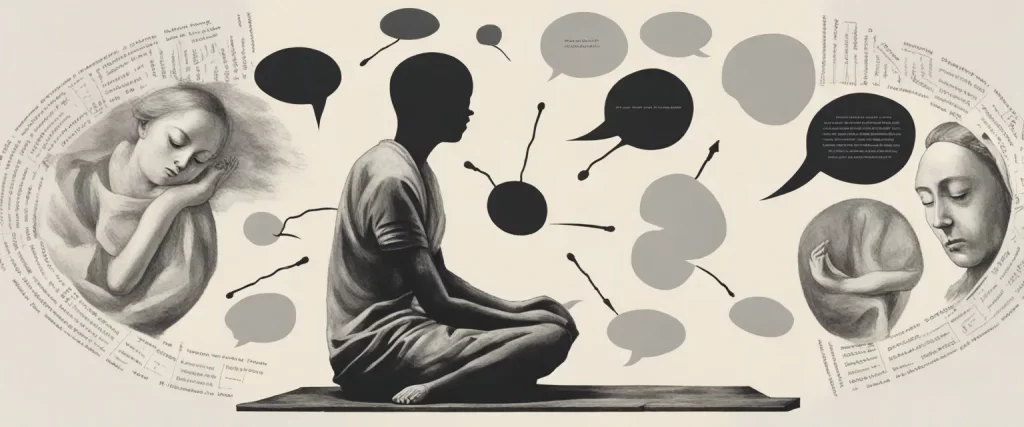The Path to Positivity: Embrace ‘Ikigai’ by Héctor García for Transformational Thinking

In today’s fast-paced world, where stress and uncertainty seem to be constant companions, finding inner peace and a sense of purpose can feel like an elusive quest. However, buried within the pages of Héctor García‘s insightful book “Ikigai,” lies a powerful tool that holds the potential to transform our lives – positive thinking. As we delve into the profound wisdom of Ikigai, we embark on a journey to discover how embracing positivity can not only enhance our mental wellbeing but also unlock the unique harmony and fulfillment we all seek. So, journey with us as we explore the magic of positive thinking and unlock the secrets to living a truly meaningful life.
What is Postive Thinking
Positive thinking is the practice of consciously focusing on positive thoughts and attitudes, with the belief that this will lead to positive outcomes in one’s life. It involves actively choosing to adopt an optimistic mindset, seeing the good in situations, and finding the silver lining even in challenging circumstances. Positive thinking can help improve overall mental and emotional well-being, reduce stress levels, increase resilience, and enhance motivation and productivity. It is often associated with positive psychology and self-help practices.
Why is Postive Thinking Important to Us
Positive thinking is important to us because it has numerous benefits to our physical, mental, and emotional well-being. Here are some reasons why positive thinking is important:
1. Improved mental health: Positive thinking helps reduce stress, anxiety, and depression. It promotes a more optimistic outlook on life, enhances self-esteem, and fosters emotional resilience.
2. Increased motivation and productivity: When we think positively, we are more likely to set goals, believe in our abilities, and take action to achieve them. Positive thinking energizes us and enhances our motivation and productivity levels.
3. Better physical health: Research has shown that positive thinking can have a positive impact on our physical health. It can lower blood pressure, boost the immune system, improve cardiovascular health, and promote better overall well-being.
4. Enhanced problem-solving skills: Positive thinking helps us approach challenges and problems with a solution-focused mindset. It allows us to think creatively, find alternative solutions, and persevere through difficult situations.
5. Improved relationships: Positive thinking fosters positive communication, empathy, and understanding within relationships. It helps build stronger connections, promotes cooperation, and contributes to a more harmonious social environment.
6. Increased resilience: Positive thinking enables us to bounce back from setbacks and adversity more easily. It helps us maintain a hopeful and optimistic attitude even in challenging times.
7. Attracts positivity: Positive thinking has a way of attracting positive experiences and opportunities into our lives. By focusing on what is going well and being grateful for it, we create a mindset that attracts more positivity.
Overall, positive thinking enhances our overall well-being and enables us to live a happier, healthier, and more fulfilling life.
Unlocking Postive Thinking from Ikigai

Ikigai Introduction
Ikigai: The Japanese Secret to a Long and Happy Life” by Héctor García and Francesc Miralles is a book that explores the ancient Japanese concept of Ikigai, which translates to “reason for being” or “purpose in life.” The authors delve into the stories and philosophies of the people of the Japanese island of Okinawa, known for their exceptional longevity and high quality of life. Through interviews and research, they identify nine key principles that contribute to finding and living one’s own Ikigai.
The book highlights the importance of having a clear sense of meaning and purpose in one’s life and how it can lead to enhanced well-being and longevity. The authors discuss the significance of finding joy in everyday activities, adopting a healthy lifestyle, and cultivating strong social connections. They emphasize the power of maintaining an active and fulfilled mind, body, and spirit, and provide practical guidance on incorporating these principles into one’s life.
“Ikigai” also examines the influence of the Japanese culture, including concepts such as mindfulness, gratitude, and embracing imperfections. The authors discuss the benefits of living in the present moment, striving for both personal and professional fulfillment, and the potential of finding Ikigai at any stage of life.
Overall, “Ikigai” presents a holistic approach to living a long and meaningful life, drawing inspiration from the wisdom and practices of the people of Okinawa. It serves as a guide to individuals seeking to discover their own Ikigai and make positive changes that can lead to increased happiness and longevity.
Postive Thinking Methods
In the book “Ikigai: The Japanese Secret to a Long and Happy Life” by Héctor García and Francesc Miralles, there are several methods and practices mentioned to cultivate positive thinking. Here are a few of them:
1. Gratitude: Practicing gratitude is about appreciating the small things in life and being thankful for what you have. It helps shift your focus from what is lacking to what is already present and positive in your life.
2. Mindfulness: Being present and fully engaged in the current moment is an important practice for positive thinking. By practicing mindfulness, you can prevent your mind from dwelling on negative thoughts or worrying about the future.
3. Embracing challenges: Embracing challenges is linked to the concept of “ikigai,” which is finding purpose and meaning in your life. Rather than avoiding difficult situations, shifting your mindset to see them as opportunities for growth and learning can help you approach life with a more positive attitude.
4. Surrounding yourself with positive influences: Surrounding yourself with positive people, uplifting books, inspiring music, or any form of positive influence can help foster a positive mindset. This practice encourages you to seek out and cultivate relationships and environments that support your overall well-being.
5. Visualization and affirmation: Visualizing and affirming positive outcomes can help shift your mindset towards positivity. This practice involves creating a mental image of the desired outcome and repeating positive affirmations to reinforce a positive mindset.
Overall, the book emphasizes the importance of cultivating positivity in daily life and provides various methods to foster positive thinking for a happier and more fulfilling existence.
Ikigai Quotes
Ikigai quotes as follows:
1. “The happiest people are not the ones who achieve everything they want, but those who enjoy what they already have.”
2. “Ikigai is the reason you get out of bed every morning.”
3. “Finding your ikigai requires a patient search. It’s like putting together a puzzle, where you are the main piece.”
4. “The purpose of life is not to be happy, but to find meaning and fulfillment.”
5. “To live with purpose, we must consciously choose how we spend our time.”
6. “Happiness comes from living a life that feels meaningful.”
7. “Knowing your personal ikigai puts you in control of your own life, empowering you to create a life of purpose and passion.”
8. “Ikigai is not something you need to find, but something that emerges as you pursue what you love.”
9. “The key to longevity and happiness is not simply a healthy body, but a mind that finds purpose and fulfillment.”
10. “Discovering your ikigai is a lifelong journey, with each stage of life offering new opportunities for growth and fulfillment.”

More Books About Ikigai
Book Recommendation: Exploring Ikigai and Finding Meaning in Life
1. The Subtle Art of Not Giving a F*ck” by Mark Manson
In this thought-provoking book, Mark Manson challenges conventional wisdom and encourages readers to embrace life’s uncertainties. While not directly focused on Ikigai, its message aligns with the concept of living a life of purpose and finding meaning in what truly matters.
2. The Secret” by Rhonda Byrne
Rhonda Byrne explores the power of positive thinking and the law of attraction. Although different in approach from the principles of Ikigai, “The Secret” emphasizes the importance of aligning one’s thoughts and actions with their desired outcomes, offering a complementary perspective on finding fulfillment in life.
3. Your Erroneous Zones” by Wayne Dyer
Wayne Dyer’s book delves into the idea of self-awareness and overcoming self-imposed limitations. By identifying and challenging erroneous beliefs, readers can develop a clearer understanding of themselves and move closer to discovering their Ikigai.
4. Man’s Search for Meaning” by Viktor E. Frankl
Frankl, a Holocaust survivor and renowned psychiatrist, explores the search for meaning in one’s life. By recounting his experiences in concentration camps and discussing his psychological theory, he inspires readers to uncover their own sense of purpose and embrace a life rich in meaning.
5. The Power of Now” by Eckhart Tolle
Tolle’s book offers profound insights into the nature of human consciousness and the importance of living in the present moment. By focusing on the Now, readers are encouraged to let go of past regrets and future anxieties, nurturing a deeper connection with themselves and their Ikigai.
Although these books do not explicitly explore Ikigai, each provides valuable perspectives on finding meaning, purpose, and fulfillment in life. By combining the wisdom of these authors with the insights of Héctor García’s “Ikigai,” readers can embark on a transformative journey towards discovering their true passions and living a life of harmony and contentment.



0 Comments